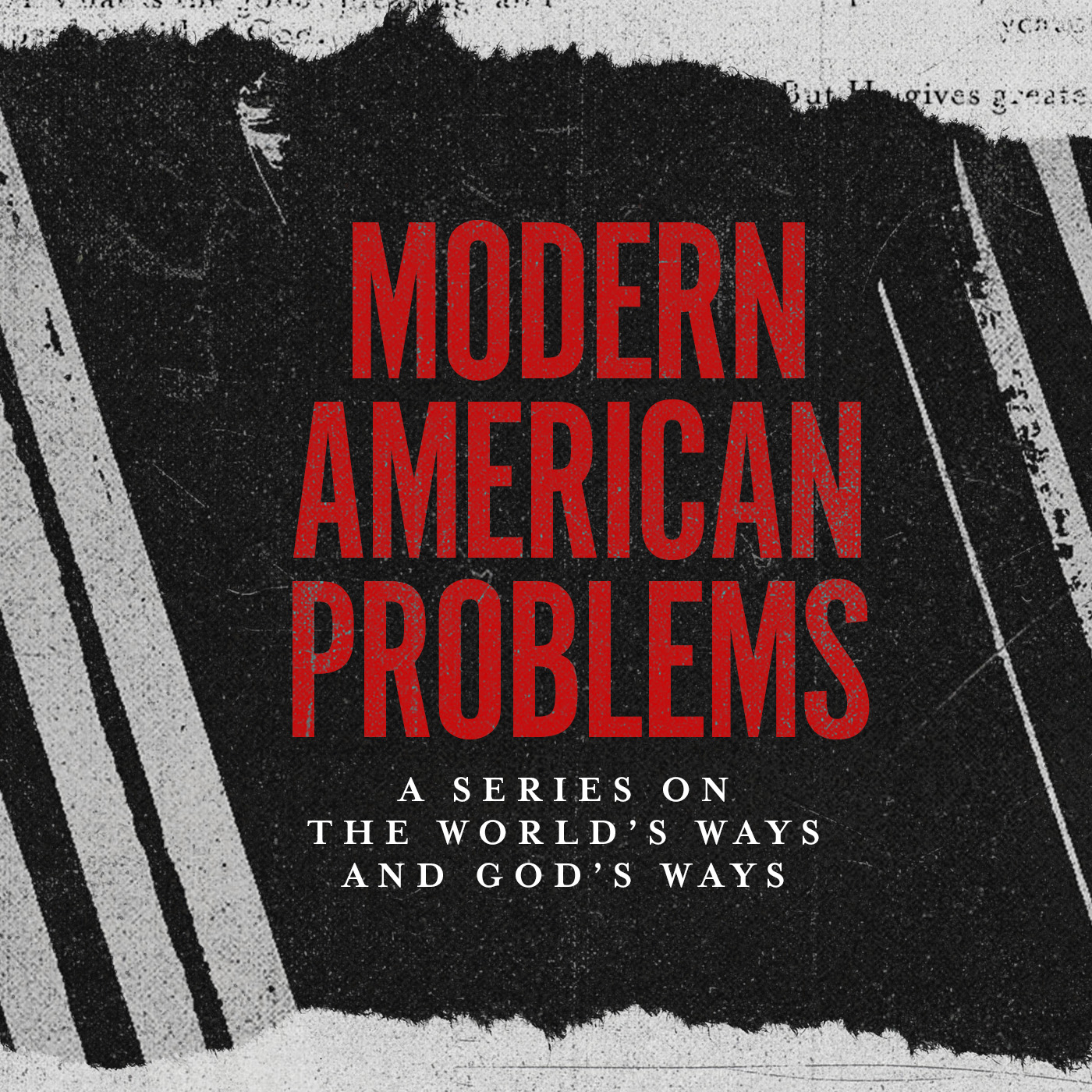This is a question that I’ve seen pop up from time to time; I figured it might be good to address it. I believe that the answer to this question is: both. And to be fair, I am including
a link to an article from the opposing viewpoint so that you can see what the other side of this debate looks like.
Let me begin with some general truths that I believe answer this question, and then I’ll rebut that particular article at the end.
(A) I DON’T SEE A BIG DIFFERENCE IN PURPOSE BETWEEN THE CHURCH SCATTERED AND THE CHURCH GATHERED.
Let me define my terms. When I say “the church scattered,” I am talking about the people of God, throughout the week, living their ordinary lives. Because the Bible says, “Christ loved the church and gave himself for her” (Eph. 5:25) I do not interpret the word “church” to only be the name of the gathering that Christians have on Sundays. I don’t believe that Jesus gave Himself for that meeting. I believe He gave Himself for those people. I believe we continue to be His church (the people who Christ loves and gave himself for) even when we are at work on Monday.
Also please notice that the heading for this section says, in “purpose.” Because I definitely recognize that there are differences in “practice” between what the church does when it’s scattered and what the church does what it’s gathered. But I don’t see a difference in “purpose.”
People who say things like, “the church is for believers only; it is not for unbelievers” tend to believe that the purpose of the Sunday morning gathering is for worship and/or discipleship, but not for evangelism. Typically, they teach that “evangelism” is an important action that is to take place almost exclusively outside of the church gathering.
You can see this in paragraph #6 of the article that I linked above. Although the author had to conflate the word “pastor” with the word “church,” (and then imagine that churches can’t do anything else while gathered other than what that verse says about pastors) in order to get the Scripture to say what he wants it to say.
This distinction that worship/discipleship is for the gathered church, and evangelism is for the scattered church is not a distinction I see laid out in Scripture. So, while I agree that three of the big purposes of the church are worship, discipleship, and evangelism, I don’t see any reason why the church shouldn’t do all three of these things both while gathered and while scattered. The idea that we shouldn’t evangelize when gathered seems like an unnecessary and unhelpful prohibition that the Bible doesn’t make. The same would be true if someone said we shouldn’t worship/disciple while scattered.
(B) THERE IS NO WAY TO PREVENT UNBELIEVERS FROM ATTENDING.
This should be obvious, but I must point it out anyway. One reason that we should share the gospel with unbelievers (even when gathered as believers) is because they are present. There’s no way to prevent them from being among us when we gather. Even if we put bouncers at the doors who checked for baptisms and professions of faith before allowing entrance, you’d still not be able to weed them all out. Here are two big reasons:
- Some people profess to be Christians when they are not. Verses like 1 John 2:19, Mark 4:16-17, and Matthew 7:21-23 strongly imply that there will, at times, be people among us claiming to be fellow believers, who are eventually revealed to not belong to Jesus at all.
- We keep birthing non-Christians and bringing them with us to church. The Bible teaches that people aren’t born Christian; they are “reborn” Christian. No one is a believer in Jesus Christ from the moment of physical birth. Therefore, even if you could create a church where only true believers were present, you’d immediately mess up the purity of said meeting as soon as any of those people began to have children.
In addition to those two types of people, there have also been many people, weary from the ways of this world, who have sought out a savior by checking out gatherings of Christians to see what they have to say. (You could also describe this phenomenon from the heavenly point of view: sometimes God draws people to Himself, by leading them to a group of messengers with the gospel.)
So, we are responsible to share the gospel with unbelievers and call them to repentance, even when we are gathered for church services, because they are there.
(C) THE IDEA THAT CHURCH GATHERINGS WOULD BE OPEN (RATHER THAN CLOSED TO MEMBERS ONLY) SEEMS TO BE THE PRACTICE OF THE CHRISTIAN CHURCH GOING BACK TO THE FIRST CENTURY.
When I look at the descriptions of the apostles teaching in the Temple complex (Acts 2:46) and in synagogues (Acts 13:14-16, 42, and 44) and in houses (Acts 18:6-8) and in lecture halls (Acts 19:9-10) it seems to me that many of these meetings were open to the public.
I realize that the temple complex and synagogues may have only been open to the “Jewish public” but that doesn’t change the fact that they were teaching the Bible in gatherings where unbelievers were present.
I also realize that the meetings in the lecture hall in Ephesus were meetings where Paul met “separately with the disciples,” and that one could take that to mean that only people who were already Christians were allowed in those gatherings. But I’m not so sure. The result of those gatherings was that “all the inhabitants of Asia, both Jews and Greeks, heard the message about the Lord.” In context, it seems more likely that “separately with the disciples” meant that Paul taught the gospel to whoever wanted to show up and become a learner of Jesus - free from the local synagogue member’s interferences - rather than meaning that these were “members-only meetings” where unbelievers were forbidden entry.
James 2:1-4 also seems to be written from the perspective that the public was allowed to walk into a Christian meeting. And 1 Corinthians 14:23-25 specifically mentions unbelievers walking into a meeting of Christians, and the instructions given in that passage were not to keep the unbelievers out, but rather to make sure their meeting behavior is the kind that will convince the unbeliever that God is really among them.
MY REBUTTAL TO THE ARTICLE LINKED ABOVE
In closing, let me explain why people, like the author of the article above, though well-meaning, are not correct in their admonitions about church.
Actually, the problem is they are only partially incorrect. I actually agree with much of what the author said in his piece.
I agree with him that only Jesus can save. I disagree with him when he says that we shouldn’t try to “save people.” That is being too picky about phrasing. Even the Apostle Paul (see 1 Corinthians 9:22 where Paul says that he wants to “save” people) when writing Scripture didn’t meet this guy’s qualifications for how to talk about evangelism.
I also agree with the author that our preaching of the gospel “should make [unbelievers] feel uncomfortable in their sinfulness and separation from Christ and cause them to repent and be saved, or to get out.” Yep, we are totally on the same page there. But doesn’t the author realize that for these unbelievers to hear that uncomfortable message which would cause them to repent, they’d have to be in the room to hear it?
At one point he says: “church is for believers only; it is not for unbelievers.” I disagree with this wholeheartedly. However in the next sentence he says: “Yes we want unbelievers to come in and get saved by God, but primarily the church isn’t for them.” Ok, well, when you say it that way, I agree wholeheartedly. So, which is it?
Is it that church is primarily for believers (something I agree with) or that church is only for believers (something I disagree with)? Because the article says both in the same paragraph, and they are not the same thing.
At one point, the author even makes it sound like “skinny jeans and cool shirts” are antithetical to being a representative of Christ. Really? I don’t understand this kind of antagonism toward modern dress. Why would we invent extra sins not listed in the Bible (ie: pastors can’t wear cool shirts) so that we can condemn brothers who are teaching the gospel in a different way than us?
This approach is well-meaning, but misguided.
While I agree that church is primarily for believers (and I would guess that about 80-90% of what I say on Sundays is directed toward Christians specifically) church is not only for believers. It is not wrong (in fact, it is good) to preach the gospel to unbelievers while they are there. And they are always there.

